Sustainability Material Issue 9 Building Responsible Supply Chain Management

Objective
Implement sustainable procurement with zero tolerance for human rights and labor problems (including child labor and forced labor) or environmental destruction in line with the Sustainable Material Procurement Policy and Lion Group Supplier CSR Guidelines.
| Indicators (2030) |
|
|---|---|
| Progress (2023 results) |
|
| Globally Common Measures to 2030 | Create and promote a sustainable procurement system in cooperation with suppliers |
The Lion Group aims to contribute to the achievement of the Sustainable Development Goals (SDGs), a set of shared worldwide goals for 2030. However, palm oil derivatives and pulp and paper products, which are key raw materials in the Lion Group's products, present risks related to raw material procurement to sustainable development in terms of human rights, labor issues and environmental issues. To address these risks, we have established the Sustainable Material Procurement Policy. Based on this policy, we are advancing initiatives aimed at the sustainable procurement of palm oil derivatives and pulp and paper products.
The Lion Group is proactively advancing the utilization of plant-derived materials that are carbon neutral and non-depletable. Among the plant-derived materials that Lion uses are derivatives of palm oil—the world’s leading vegetable oil in terms of production volume. Palm oil is produced in principally Malaysia and Indonesia.
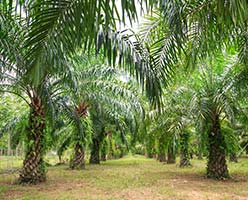
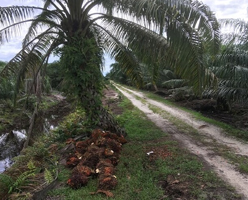


Palm oil production is increasing year by year, partly because oil palms (the source of palm oil) are highly productive and can be harvested throughout the year. However, with the rapid expansion of production, a number of issues have arisen in producing regions, such as the destruction of tropical rainforests and wildlife habitats as land is cleared for the development of new plantations. Furthermore, improper farming operations involving a wide range of human rights and labor abuses that reflect a lack of social justice have been identified. These include poor labor conditions with inadequate consideration given to health and safety, low wages, improper treatment of immigrant workers and the use of child labor.
Since 2006, Lion has been a member of the “Roundtable on Sustainable Palm Oil (RSPO),*1” which works toward the resolution of such issues. In 2012, the Oleochemical Production Site of Lion Chemical Co., Ltd., a domestic affiliate that procures palm oil from Malaysia and Indonesia, passed the RSPO’s supply chain certification system*2 inspection and was certified as a plant that may handle RSPO-certified palm oils. Accordingly, Lion Group started procuring RSPO-certified palm oils from 2012. The Lion Chemical Corporation Fine Chemical Production Site received RSPO supply chain certification in March 2020, and Lion Corporation and all its plants (the Chiba Plant, Odawara Plant, Osaka Plant and Akashi Plant) were certified in August 2020. Moreover, Lion Specialty Chemicals Co., Ltd. was certified in June 2022.
The Lion Group’s aim for the end of 2030 is to ensure RSPO certification for all the palm oil derivatives it uses. As of the end of 2022, Lion had switched to RSPO-certified products for 99% of its domestic key raw materials, and continued this effort in 2023.
Furthermore, regarding the palm oil derivative used in its consumer products, the Group’s aim is to purchase only oil that can be traced to sustainability-conscious mills. To ensure traceability, the Group discloses a mill list detailing the key materials procured from its primary suppliers.
Going forward, we will continue to work to procure sustainable palm oil.
*1
The Roundtable on Sustainable Palm Oil
The Roundtable on Sustainable Palm Oil (RSPO) believes that for palm oil production to be sustainable, it must not only be compliant with relevant laws and regulations, but economically sustainable, environmentally appropriate and socially beneficial. These requirements are laid out concretely in the RSPO Principles and Criteria. Only palm oil produced in accordance with these seven principles and 40 criteria can be RSPO-certified.
*2
RSPO Supply Chain Certification
This system certifies that RSPO-certified raw materials have a reliable delivery system in place throughout the entire supply chain, after audits by external auditors.
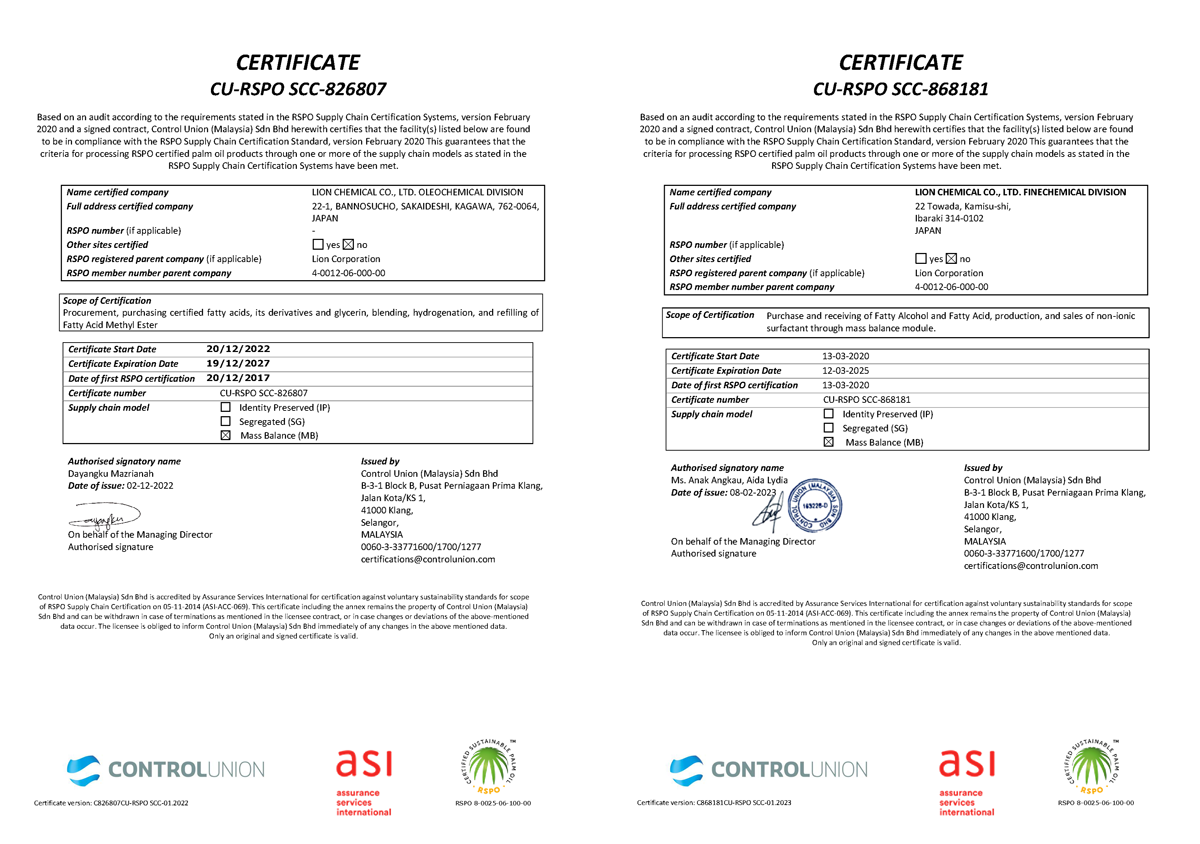
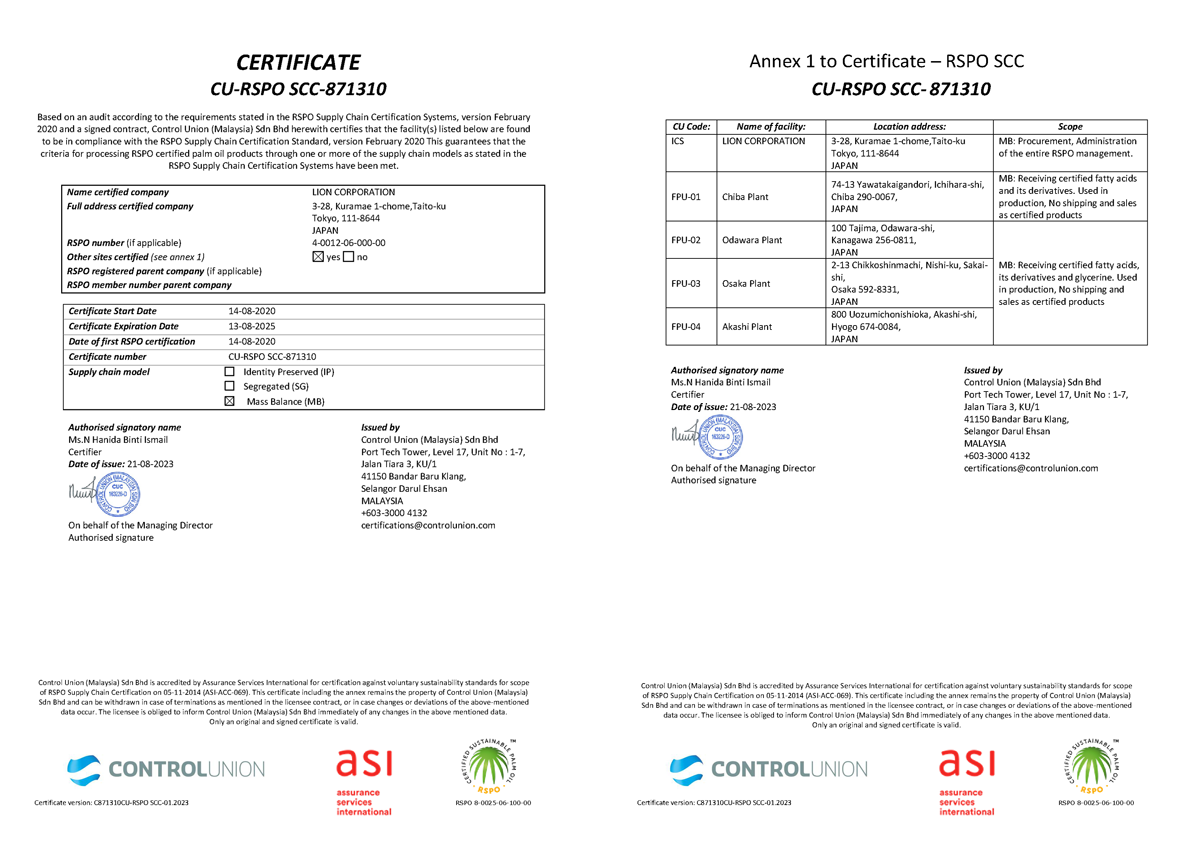
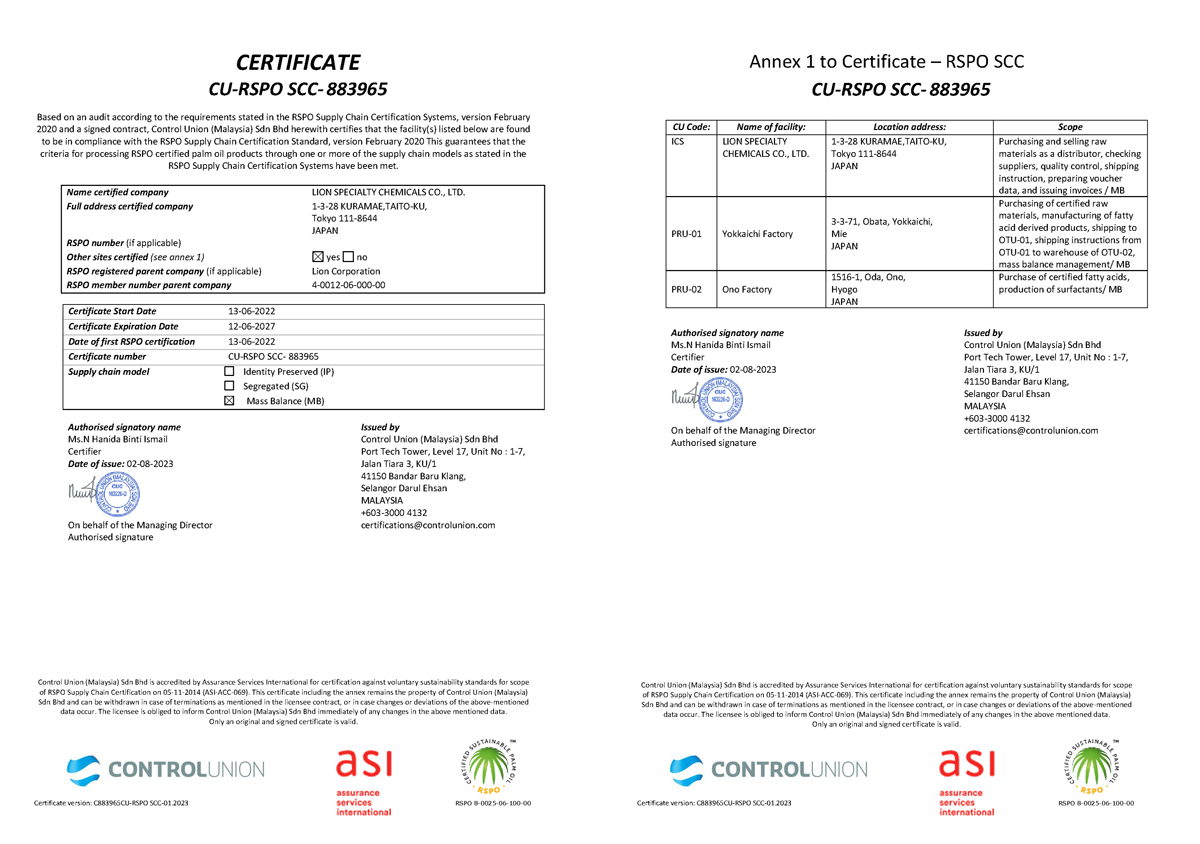
Pulp and paper are used in the manufacture of the Lion Group’s product packaging, booklets and pamphlets as well as in the copy paper and other office supplies the Company purchases. In order to better protect biodiversity in the procurement of these materials, based on the Sustainable Material Procurement Policy, we are advancing the procurement of third party-certified paper products. As of the end of 2023, 98% (by weight) of such products procured from domestic manufacturers was third-party certified, and 75% (item ratio) of packaging materials for major products was third-party certified. In addition, we have identified the country of harvest’s administrative divisions (states, provinces, etc.) for 100% of the woodchips and pulp used in our product packaging.
Lion has been a member of the Roundtable on Sustainable Palm Oil (RSPO), an international initiative, since 2006. Furthermore, since 2012, Lion has taken part in the Supply Chain Subcommittee of the Global Compact Network Japan, contributing to the preparation of various publications, such as an introductory text on CSR procurement.
The Lion Group holds the Regional Purchasing Manager meeting annually with the goals of reducing costs at the overall Group level and reinforcing communication between the purchasing staff of participating companies by fostering personal connections.
In 2023, the conference was held online as well as in-person in September, with participation from eight countries, including Japan. At the meeting, the 13th of its kind, representatives from each company reported on their use of such sustainable packaging materials as mono-materials and recycled plastics as part of their ESG initiatives, procurement of palm oil-related RSPO-certified products and their cost reduction efforts in addition to sharing information. We will continue to support the purchasing activities of each company to strengthen the purchasing power of the entire Group.
The second item of Lion’s Procurement Principles states that Lion shall “Rationally select business partners not only on the basis of quality, cost and timely delivery, but also regulatory compliance, environmental protection, labor, and human rights, to fulfill our responsibility to customers and to create a sustainable, healthy society.” In line with this principle, we promote environmentally friendly green purchasing on a Company-wide basis.
Along with green purchasing, we are committed to using environmentally friendly office supplies, including notebooks and company envelopes made from recycled paper and FSC certified paper. In addition, with the relocation to the new headquarters, we have shifted from a conventional purchasing model with multiple departments ordering such supplies independently to one in which a concierge counter handles bulk purchases, helping to regulate the overall volume of office supplies in stock.
Products with reduced environmental impact are required if we are to minimize environmental problems such as marine plastic pollution and global warming. With this aim in mind, Lion has started using biomass inks* made from plant-based raw materials for some of the color inks used in product packaging (pouches, shrink films, attention seals, labels, etc.).
* Inks designed with biomass-derived raw materials as a portion of the resin component and comprising more than 10% plant-based ingredients in the ink film once dry.